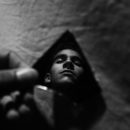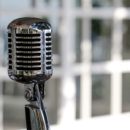OCD Treatment Group Using ERP
OCD Treatment Group! I am pleased to announce the availability of our new exposure and response prevention (ERP)-based treatment group. The intent of this group is to provide a supportive environment for completing ERPs. Participants wishing to attend are required to register using the links at the bottom of this post. This group will first meet on Saturday (8/10/13), 1pm-3pm. The fees for attending this group are $75/session or $50/session if you pay in advance and commit to a 4-week group treatment sequence. Insurance will not be accepted; however, if you have out-of-network benefits, you may be eligible to submit your bill for reimbursement by your insurance company. Subsequent 2-hour sessions will be held on 8/17, 8/24, and 8/31 @ 1pm. You are free to participate in any or all of these sessions; however, individuals are most likely to...
Read MoreBody Dysmorphic Disorder (BDD) Symptoms
Symptoms of Body Dysmorphic Disorder (BDD) Body dysmorphic disorder (BDD) is a somatoform disorder that closely resembles obsessive-compulsive disorder (OCD). Symptoms of body dysmorphic disorder include excessive concern about perceived physical flaws, defects, or imperfections. Individuals with body dysmorphic disorder become obsessed with these unwanted aspects of their appearance and perform a variety of rituals and avoidance behaviors in order to disguise or conceal these “flaws.” BDD symptoms typically result in extreme distress and a variety of social and occupational difficulties. Body dysmorphic disorder symptom areas vary between individuals and commonly focus on the skin, hair, weight, and specific facial features, such as the nose (Philips, 2005). In The Broken Mirror (2005), Dr. Philips breaks down the frequency of different types of BDD concerns: Skin 73% Genitals 8% Hair 56% Cheeks/cheekbones 8% Weight 55% Calves 8% Nose 37% Height...
Read MoreBody Dysmorphic Disorder (BDD)
What is Body Dysmorphic Disorder (BDD)? Body dysmorphic disorder (BDD) is not formally classified as an anxiety disorder; however, it shares many overlapping features with anxiety disorders like obsessive-compulsive disorder (OCD). In contrast to OCD which typically focuses on specific external feared outcomes, body dysmorphic disorder involves hyper-attention to one or more perceived bodily defects, imperfections, or flaws. BDD “flaws” are experienced as distressing and intolerable. In some cases, the imperfections that bother individuals with body dysmorphic disorder can be perceived by other people, but BDD magnifies and distorts these imperfections in the eyes of the sufferer. In other cases, individuals with BDD notice and attend to “flaws” that cannot be readily perceived by others. Regardless of the form of one’s symptoms, body dysmorphic disorder is associated with extreme distress and shame. Moreover, because BDD-related “flaws” are often perceived as being...
Read MoreFear of Saliva Swallowing & Choking: Treatment & Symptoms (OCD)
Question: I have sensorimotor OCD, and I’m suffering from conscious swallowing. My main fear is that I’ll choke or swallow my own saliva whenever I’m speaking or singing. Any tips for how to tackle this fear via exposure and response prevention (ERP)? Great question. Consistent with general exposure and response prevention (ERP) principles, your exposures need to address your specific feared outcomes. Feared outcomes can vary greatly for individuals with the same presenting problem. I discuss this idea in a different context here: feared outcomes in OCD. For people with a fear of swallowing or drinking saliva, there are several possibilities. Fear of Potential Embarrassment: Social Anxiety If you are afraid of potential embarrassment due to coughing or choking while speaking, your symptoms might actually reflect underlying social anxiety (rather than somatosensory OCD). However, it’s also possible for social...
Read MoreSensorimotor OCD & Social Anxiety Differential Diagnosis: “Obsessive Swallowing”
Reader Question: For the past year, I have been dealing with OCD-related sensorimotor obsessions focused on swallowing. My symptoms started during a class discussion in which I noticed myself swallow. Since then, whenever I am in a lecture or quiet place surrounded by people, I become deeply focused on my own swallowing and worry that others will notice my swallowing and then judge me. I am practicing meditation and daily exposures in which I sit down in a quiet room and intentionally invite the swallowing in. I also purposefully invite the swallowing in throughout the day, even when I am in the presence of friends. I try to be mindful of my swallowing without doing anything to avoid it or mask it. Even though my awareness of swallowing has not entirely gone away, the anxiety associated with it has...
Read More







